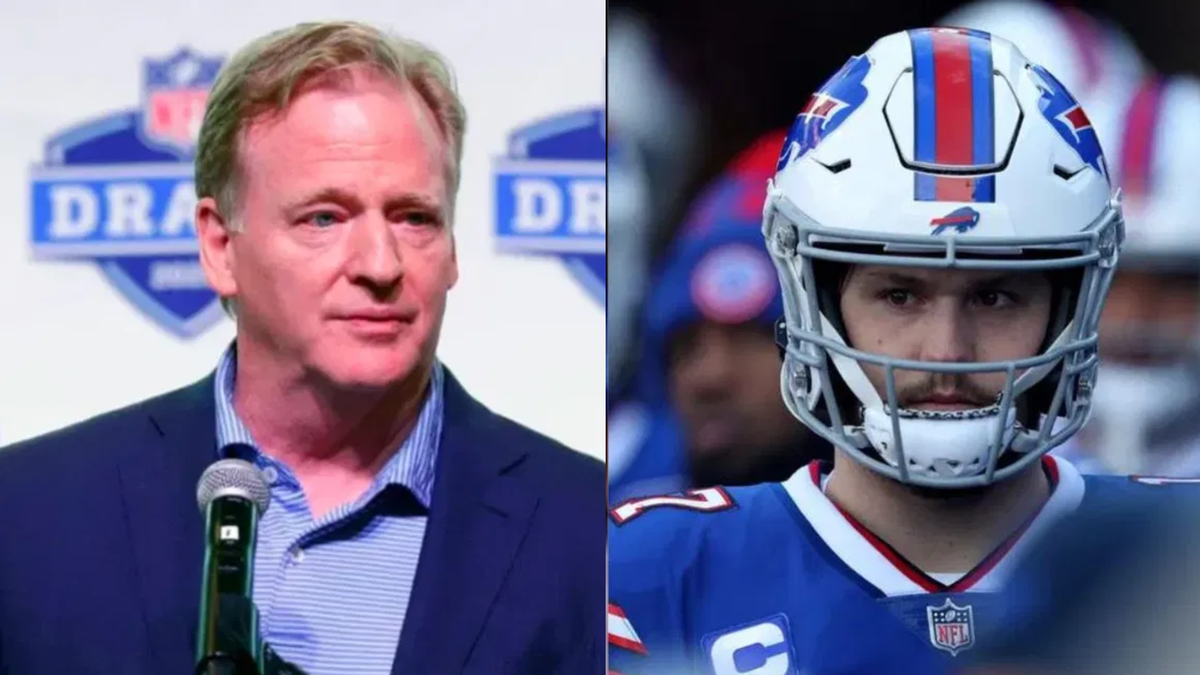
Imago
Image Credits: Imago

Imago
Image Credits: Imago
The dome hall in the Colony, Texas, buzzed with the low hum of giants exchanging war stories. Terron Armstead, fresh off retirement, leaned into the mic during the eighth annual O-Line Masterminds Summit. His gaze landed on Buffalo Bills tackle Dion Dawkins, standing near the back.
Watch What’s Trending Now!
“Y’all see Dion over there?” Armstead’s voice cut through the chatter. “Man spearheaded the whole thing. Got us our own trophy.” The room erupted. Two hundred linemen—past legends, current maulers, future stars—rose in a thunderous ovation. Dawkins just smiled, wide and real. It was the sound of a decades-long silence finally breaking.
ADVERTISEMENT
The Vegas stand: How a Super Bowl party plea sparked the NFL’s first O-Line Trophy
“It was something that was mandatory for football,” Dawkins told later, the weight of the moment still fresh. This wasn’t just applause. Indeed, it was validation for every anonymous snap, every pancake block met with crickets while skill players soaked up glory. The ‘Protector of the Year’ award, unveiled by the NFL this past May, wasn’t born in a league office memo.
It was forged in the trenches of persistence, championed by Dion Dawkins and fellow O-line sage Andrew Whitworth over years of relentless advocacy. Their final push? A bold, unscripted moment at Roger Goodell’s Super Bowl LVIII party in Vegas. With Hall of Famer Orlando Pace flanking him for moral support, Dawkins cut straight to the chase with the commish.
Top Stories
Josh Allen Officially at Risk of Losing 21 Players as Bills Coach Quits Hours After Joe Brady Announcement

Terry Bradshaw Makes Personal Announcement Amid Calls for Retirement After On-Air Mistake on FOX
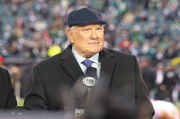
UT Tyler Athletics Announces Brittany Mahomes’ Induction Into 2026 Hall of Fame Class After Remarkable Career

Jason Kelce to End Partnership With ESPN Days After Announcing New Broadcasting Move – Report
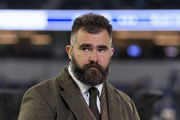
Mike McCarthy’s Clear Message for Will Howard After HC Makes Aaron Rodgers Decision
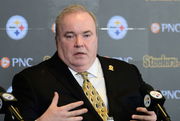
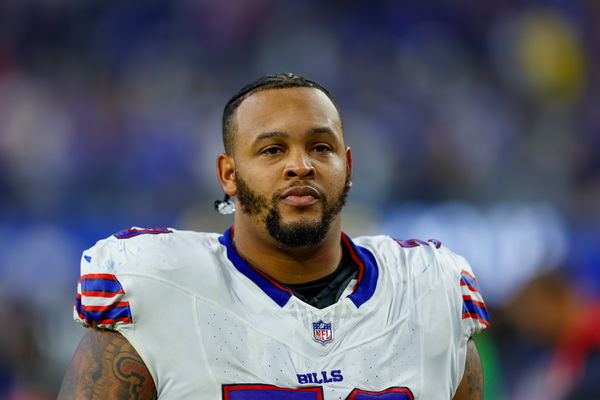
Imago
INGLEWOOD, CA – DECEMBER 08: Buffalo Bills offensive tackle Dion Dawkins 73 walks off of the field after an NFL, American Football Herren, USA game between the Buffalo Bills and Los Angeles Rams on December 8, 2024, at SoFi Stadium in Inglewood, CA. Photo by Jordon Kelly/Icon Sportswire NFL: DEC 08 Bills at Rams EDITORIAL USE ONLY Icon2412083344
“I was like, ‘Rog,’” Dawkins recounted, the memory sharp. “Not one of us could ever say we were the best… have no trophy to say we’re the best. … don’t have anything that can show we’re the best offensive lineman during our time for a season. We need that award.” And Goodell’s response went in the right direction.
ADVERTISEMENT
Goodell quipped, “Dion, you’re right. I’m ready to listen. I’m here. Let’s do it.” What followed was a grind worthy of a fourth-quarter goal-line stand: “Call after call after call after call. Meeting after meeting after meeting after meeting.” Name debates, criteria hammering – Dawkins and Whitworth navigated it all.
ADVERTISEMENT
The result? Starting this season, the NFL’s top lineman will finally get hardware, judged by a panel of O-line legends including LeCharles Bentley, Jason Kelce, and Pace himself, using metrics like pass-block win rate and sheer durability.
Think about it: “Like, can you imagine if there was no MVP trophy?” Dawkins mused, cutting to the heart of the disrespect. “Can you imagine if there was no passing title? … If there was no NBA MVP, what would LeBron James be? Just another good player.” For too long, O-linemen were the NFL’s ghostwriters – essential, yet invisible. Their brilliance existed only in negatives: sacks allowed, penalties called.
Their triumphs? The QB’s clean jersey. The running back’s untouched sprint. Dawkins, a 4-time Pro Bowler with 128 games of trench warfare under his belt, changed the narrative. “As a lineman, I want to know who the best protector is. Who’s the best? And if it’s not me, cool… I know where I’m at. Now I know where I was ranked. Cool, now I can fight for it. Simple as that.”
ADVERTISEMENT
Indeed, the chemistry between Dawkins and Allen is remarkable.
From bodyguard to beacon: How Dawkins protected Josh Allen and redefined O-Line swagger
This fight-first mentality defines Dawkins, both on the field protecting Josh Allen and off it as a locker-room cornerstone. Speaking of Allen – the reigning MVP, whose 3,731 passing yards and 28 TDs last season were built behind Dawkins’ reliability – the left tackle dismisses any notion the QB needs fixing.
ADVERTISEMENT
“Josh is going to be Josh. He doesn’t have to do nothing different,” Dawkins stated plainly. “Josh is the best that he can be. The reflection is, everybody around him has to be the best that they can be for us to get over that hump.” Indeed, he sees Allen’s presence, that palpable aura, as the catalyst: “He’s one of them dudes. You can’t compare him to nothing else, man. He walks through, you feel his presence.” That’s right, Allen is natural.
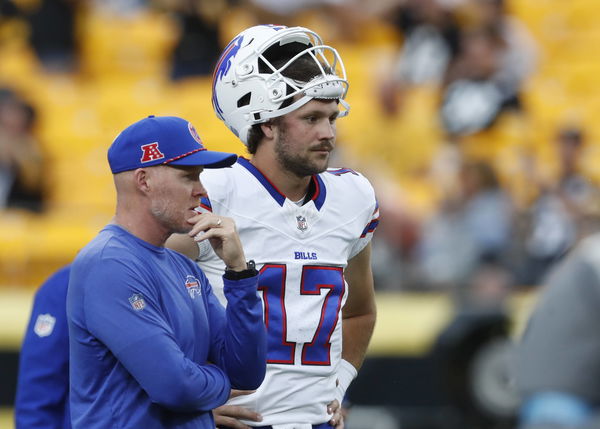
ADVERTISEMENT
It’s that same undeniable presence Dawkins brought to the Masterminds Summit. Rocking a shirt with his own face (peak Shnowman swagger), he delivered an impromptu speech dripping with the confidence of a man who’s earned his stripes: “When I walk on the field, I literally say I’m the baddest here,” he declared, embodying the O-line ethos. “I don’t give a f—. I’ll tell you, ‘I’ll talk s— and I’ll beat your a–.’”
Young linemen flocked to him during breakout sessions, drawn to his authenticity. He gets it – being a big guy isn’t the glamorous path. “People don’t want to be linemen. People want to be skinny guys,” he laughed. “But to make people want to be big guys, you have to be cool and be around big guys, right? You have to stay in the culture.” He bridges that gap, showing the next generation that dominance and personality aren’t mutually exclusive.
ADVERTISEMENT
Dion Dawkins, the kid who comforted his 7th-grade teacher with Froot Loops, the 2nd-round pick from Temple who became Buffalo’s $60.5 M cornerstone, the guy with Allen’s iconic plays tattooed on his skin, has always been more than just a blocker. He’s a culture-shifter.
The ‘Protector of the Year’ award isn’t just a trophy. It’s a legacy carved out by a man who refused to let the giants in the trenches remain invisible. It’s proof that sometimes, changing the game starts with a simple, blunt question to the commissioner: “Rog, where’s our trophy?” And then having the grit to see the answer through. As Arthur Morgan noted in ‘Red Dead Redemption 2’, ‘Legacies… they’re not always about the big moments. Sometimes it’s just about refusin’ to be forgotten.’ Dion Dawkins made sure his brothers won’t be.
ADVERTISEMENT
ADVERTISEMENT
ADVERTISEMENT
.png)
.png)
.png)



